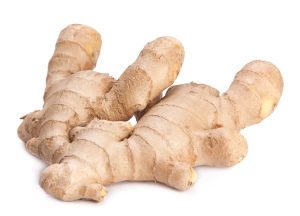Ginger (Zingiber officinale)
Ginger is otherwise known as ginger root; it is the rhizome of the plant Zingiber officinale. Although ginger is used mainly as food, it is also used for herbal remedies. Traditional healing and herbal treatments have used ginger and regards it as one of the most important herbal remedies. Much of the ability of the ginger root to treat different kinds of medical conditions especially joint and muscle pains is due to its natural composition.
Ginger is composed of a mixture of zingerone, shogaols and gingerols. These are all volatile oils that are known to treat different illnesses. Gingerols have the natural analgesic, antibacterial, sedative and antipyretic effects. Ginger also contains essential oils which may also contribute to the therapeutic effects of the herb.
Ginger’s natural analgesic effect is the reason why it is one of the most common ingredients in products for muscle pain and joint pain. Ginger oil along with other essential oils and ingredients reduce inflammation, control pain and reduces stiffness of the aching joint. When products made from ginger oil is applied over the affected area, there is immediate pain relief and is safe which is why it may be used over and over again. Ginger is so versatile it may also be used in the relief of the inflammation of the colon, to reduce nausea as a result of chemotherapy, the reduction of asthma, to manage high blood pressure, to reduce dysmenorrhea and in the reduction of migraines.
Aside from using products that contain ginger oil (creams, ointments and oils) it may also be used orally as supplements, as tea or as the actual ginger oil. But for the relief of joint and muscle pain, a topical treatment is deemed as the most suitable mode of use. Ginger oil is one of the most popular herbal treatments that have been used in many cultures all around the world.
References:
What are the benefits of ginger? – Medical News Today. (n.d.). Retrieved from http://www.medicalnewstoday.com/articles/265990.php
Ginger-Wikipedia, the free encyclopedia. (n.d.). Retrieved May 22, 2014, from http://en.wikipedia.org/wiki/Ginger


